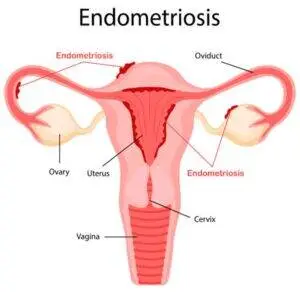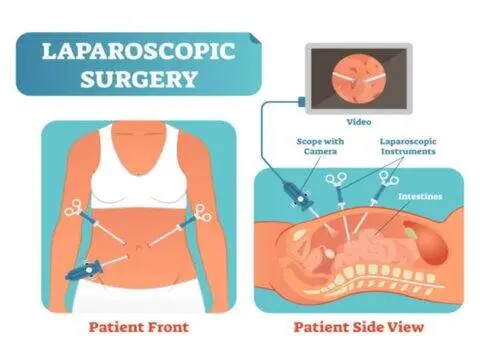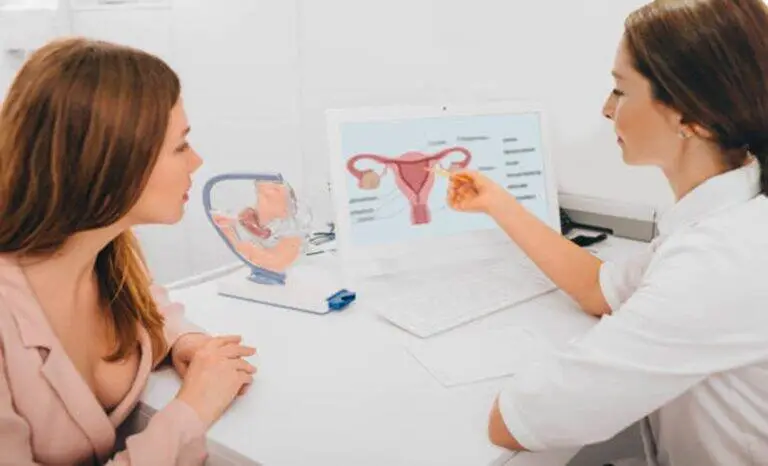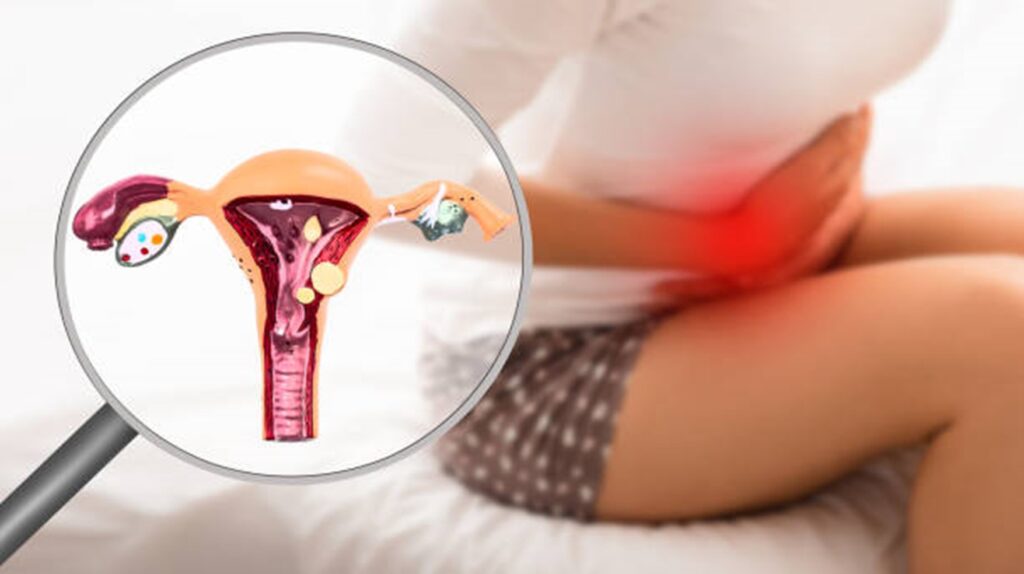Endometriosis after ablation is a condition in which endometriosis persists or recurs post-ablation. Ablation is a surgical procedure often performed to treat endometriosis. It is a condition where tissue like the uterine lining grows outside the uterus. It causes pain and fertility issues.
Are you suffering from endometriosis after endometrial ablation? Dr. Nisarg Patel, a prominent gynecologist and IVF specialist in Ahmedabad understands the challenges you may face. At Nisha IVF Centre, Dr. Patel offers effective solutions for addressing post-ablation issues.
In this blog, let’s unravel the complexities of life post-ablation. We will also discuss associated concerns and guide you toward empowerment and healing.
Curious about the procedure? Let’s dive into the details.
What is Endometriosis Ablation?
 Endometriosis ablation is a surgical procedure. It involves removing abnormal tissue associated with endometriosis. During the procedure, the gynecologist uses advanced techniques to excise or vaporize endometrial growths. It helps relieve pain and discomfort associated with endometriosis.
Endometriosis ablation is a surgical procedure. It involves removing abnormal tissue associated with endometriosis. During the procedure, the gynecologist uses advanced techniques to excise or vaporize endometrial growths. It helps relieve pain and discomfort associated with endometriosis.
Statistics show that around 70% of endometriosis patients notice a reduction in pain post-ablation. This makes it a viable option for many seeking relief from the impact of this condition. Yet, consult an expert to determine the suitable treatment based on your situation.
Considering the procedure? Connect with us for personalized insights and expert advice.
Discover the nuances of endometriosis recurrence post-ablation.
Can You Get Endometriosis After Endometrial Ablation?

Endometriosis after uterine ablation is uncommon, but it’s not impossible. Ablation helps reduce menstrual bleeding by removing the uterine lining. But it doesn’t guarantee the complete elimination of endometrial tissue. A study by Harvard Health reveals that about 5-20% of women may experience the recurrence of endometriosis after an ablation.
Endometriosis can persist or reoccur in residual tissue, outside the treated area. Thus, if you experience symptoms suggestive of endometriosis post-ablation consult a specialist. These symptoms may include pelvic pain, painful periods, or fertility issues.
Remember, each case is unique. So, discuss your condition with an expert like Dr. Nisarg Patel. It will help determine the best treatment for managing endometriosis after ablation.
Seeking solutions? Explore treatment options and proactive measures to manage this condition.
What can be the Treatment for Endometriosis After Ablation?

For treating endometriosis post-ablation, experts consider several approaches:
- Hormonal Therapies: Firstly, hormonal treatments often take the forefront in managing endometriosis post-ablation. They help regulate or suppress oestrogen. It is a hormone that fuels endometrial growth. Options include hormonal birth control methods like pills, patches, or rings.
- Pain Management: Nonsteroidal anti-inflammatory drugs (NSAIDs) like ibuprofen can help relieve pain and inflammation. They inhibit certain enzymes responsible for inflammation. These can be part of your pain management toolkit. But it is crucial to use them as directed.
- Other medications: Sometimes, hormonal treatments and NSAIDs are ineffective in managing the condition. In such cases, doctors may recommend gonadotropin-releasing hormone (GnRH) agonists. These medications induce a temporary menopause-like state. They suppress oestrogen production and ease endometriosis symptoms.
- Lifestyle Changes: Believe it or not, lifestyle adjustments can play a role. Regular exercise, a balanced diet, and stress management can improve overall well-being. It can also reduce some endometriosis symptoms.
- Surgical Intervention: In some cases, doctors may recommend surgical treatment. This may include laparoscopic excision surgery. It removes endometriosis lesions, scar tissue, or, in more severe situations, a hysterectomy. This targeted approach can provide relief by eliminating problematic tissue.

- Fertility Considerations: If fertility concerns are top of mind, consulting a reproductive specialist is crucial. They can provide insights into fertility preservation options and family planning strategies.
Remember, the right treatment depends on various factors. Hence, consulting with your healthcare provider is crucial. They will assess your condition and tailor a treatment to address your concerns.
Seeking guidance on post-ablation care? Connect with our specialists for personalized consultations.
Knowing the risks is crucial if you’ve undergone endometriosis ablation or are considering it. Let’s explore them.
Risks Associated with Endometriosis after Ablation
It is crucial to be aware of the potential risks of endometriosis after an ablation:
- Scarring Issues: Ablation may lead to pelvic scarring. It can impact fertility and cause discomfort.
- Recurrence Challenges: Endometriosis can reoccur after ablation. Hence, ongoing management and staying vigilant are necessary.
- Pain Persistence: Post-ablation, some women may continue to experience pelvic pain.
- Limited Effectiveness: Ablation might provide a short-term solution. It may need more interventions for sustained relief.
- Impact on Fertility: Risks of decreased fertility exist. Hence, it is crucial to discuss family planning options pre-ablation.
- Incomplete Lesion Removal: Sometimes, ablation may not eliminate endometrial lesions completely. This may lead to potential complications.
- Diagnostic Challenges: Subsequent diagnostic challenges may arise due to altered post-ablation tissue appearance. This may complicate future assessments.
- Hormonal Shifts: Hormonal changes post-ablation may contribute to varying symptoms.
Navigating endometriosis after ablation requires awareness of these potential risks. It helps in making informed decisions and ensures personalized management plans.
Seek clarity on your situation by scheduling a consultation with our specialists.
Conclusion
Navigating life after endometriosis ablation requires a personalized approach. Keep an open line of communication with your gynecologist, like Dr. Nisarg Patel. Empower yourself with knowledge, embrace a healthy lifestyle, and lean on support networks. Remember, you’re not alone in this journey. Stay informed, stay resilient, and take charge of your post-ablation well-being.
Concerned about risks? Visit Nisha IVF, renowned as the best IVF centre in Ahmedabad, for expert advice and personalized risk assessment.
Let’s discuss about the possibility of complications emerging years after ablation.
Can Endometrial Ablation Cause Problems Years Later?

Endometrial ablation is a common procedure aimed at alleviating heavy menstrual bleeding. However, like any medical intervention, it may have implications down the line. Years after endometrial ablation, some women report recurring menstrual issues. The procedure is effective for many. Yet, it’s not a guaranteed permanent solution. In some cases, the endometrial tissue can regenerate. This leads to the return of menstrual symptoms.
It is crucial to stay informed and be aware of potential long-term consequences. If you’re experiencing renewed symptoms or have concerns, consult your doctor to:
- evaluate your specific condition
- discuss available options
- seek guidance tailored to your needs
Open communication with your healthcare team is crucial. It helps address any concerns and ensures your ongoing well-being.
Ready to take control of your endometriosis journey? Connect with us to explore our specialized services for your post-ablation concerns. Your well-being is our priority.
Do you have more questions about endometriosis after ablation? Check out our FAQ section for concise answers to common queries.
Frequently Asked Questions:
1. Is endometriosis painful after uterine ablation?
Endometriosis pain can persist post-ablation, varying among individuals. The procedure aims to ease discomfort. Yet, it is essential to consult your doctor for personalized advice.
2. Can endometrial ablation cause problems years later?
Endometrial ablation is generally safe. Yet complications may arise years later. Rare issues like post-ablation syndrome or the need for additional procedures could occur. This emphasizes the importance of regular follow-ups with your healthcare team.
3. Has anyone gotten pregnant after ablation?
While pregnancy after ablation is uncommon and poses risks, it’s not impossible. If considering pregnancy post-ablation, consult with your healthcare provider to:
- discuss potential challenges
- explore suitable options for your situation
4. How long does it take to recover after endometrial ablation?
Recovery time varies. Many women resume their routine within a few days. Yet, it is crucial to follow recommended post-procedure guidelines. It ensures a smooth and comfortable recovery.
5. Will endometrial ablation affect my hormonal balance?
Endometrial ablation primarily targets the uterine lining. It doesn’t have any significant impact on hormonal balance. Menstrual changes may occur. But hormone levels usually remain stable. If you have any concerns, consult your doctor for personalized information.

